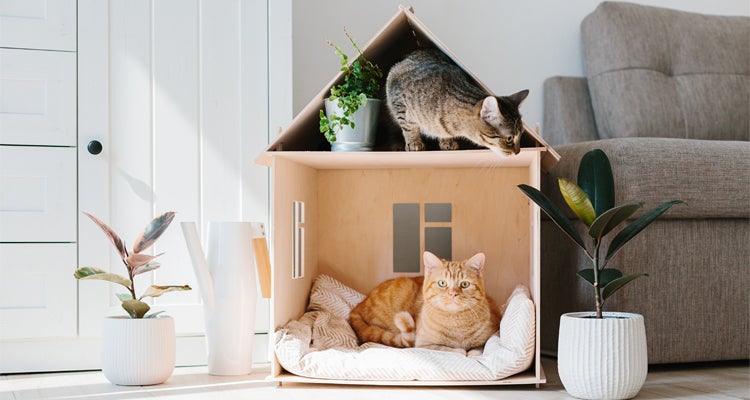
How can I tell if my cat is getting old?
Cats can start to look grown up by 6 months of age, but they are still growing and developing and are considered kittens until 12 months of age. The expected lifespan of a cat is 12-14 years, but some can live into their 20’s. Cats are very good at hiding the signs of aging but they are considered to be in their senior years once they turn 7.
The nutritional needs of cats vary as they move through the life-stages, here’s a simple guide to giving them complete and balanced nutrition that is tailored to their needs:
From weaning to 12 months: Kitten food
From 1 year to 7 years: Adult food
7 years +: senior cat food tailored to their changing needs.
Caring for an aging cat:
Cats can hide symptoms of aging well, but knowing what to look for can help maintain their health into their senior years.
• Take them to the vet for their annual health-check at booster vaccination time.
• Maintain regular flea and worming treatments.
• Feed them a complete and balanced food for senior cats.
• Look after their oral care by feeding them WHISKAS® DentaBites every day.
• Check their bodyweight and condition. Some cats can start to lose weight as they get older, monitor it weekly and adjust their food accordingly, but be sure to go to the vets if body condition is not maintained.
• Are they drinking normally? If cats start to drink more than normal this can be a sign that something may be wrong.
• Are they eating normally?
• Is everything normal with their urination and defaecation habits? – some older cats may become constipated.
• How is their coat? Some cats don’t groom as regularly as they get older so may need assistance keeping their coat in good condition.
• Long-haired cats need particular help with regular grooming to ensure that their coat doesn’t become matted. Removing the dead hair with a comb or brush also helps to prevent hairballs.
• Are they drooling, reluctant to let you touch their face, eating differently or does their breath smell? All of these can be symptoms of gum disease or painful teeth and needs checking by a vet.
• They may sleep even more hours of the day than a young adult cat! – provide them with a comfortable place to rest in a peaceful, dry, warm, draft-free area to ensure they can sleep well, undisturbed.
If you have any concerns about your cat's health, you should always consult your vet.












